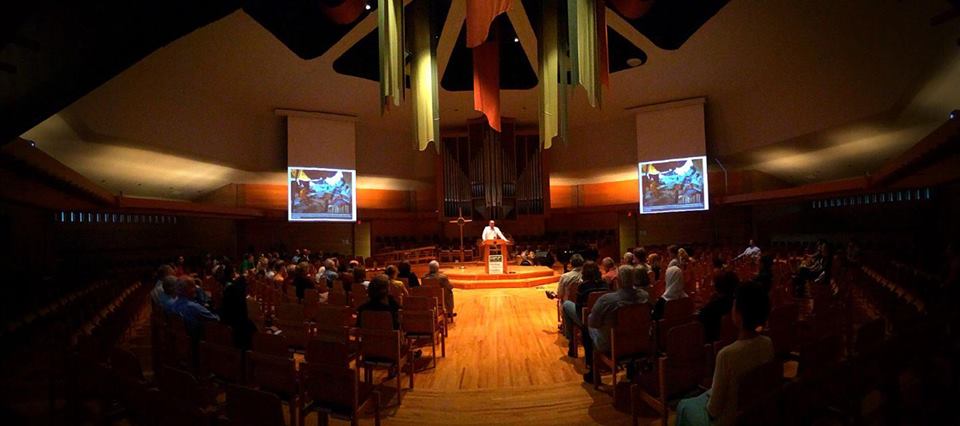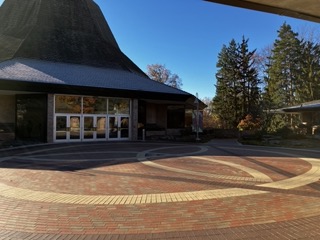Ali Abunima, a renowned activist and author, spoke in the chapel undercroft about Gaza’s plea for help on Monday, Sept. 8.
Abunima is author of “One Country” and “Battle for Justice in Palestine” and co-founder and executive director of The Electronic Interfada, an online publication that serves to advocate for Palestine.
Among the event sponsors were the Middle East Club, the Calvin history department, Peace Means GVSU and Healing Children of Conflict. Abunima walked up to the podium in the front of the chapel and paused. He thanked everyone for coming with visible sincerity.
“You all here shows that people are asking questions,” he said. “And that is encouraging to me.”
Abunima began by showing pictures and videos of the destruction that has occurred in Gaza since the bombings first started.
History professor Douglas Howard is a board member of Healing Children conflict and the faculty mentor for the Middle East club at Calvin. He served as MC for the event.
Howard said that the pictures were quite powerful:
“(Abunima) is an effective speaker, the material was very sad.”
Abunima spoke with remorse for the lives lost and the destruction that has occurred since the siege in 2007 and the more recent bombings. One in 1,000 people were killed in span of 51 days.
The bombings of Gaza from Israel have recently drawn significant attention to the issue, however, Abunima also spoke about the injustices that Gaza has been facing since the siege in 2007.
This has only gotten worse with the bombings as factories and fields have been targeted, and no food is coming in. This means food and other essentials are scarce.
According to Howard, Israel is a hot issue for debate in the U.S.
“When you bring Israel up people start yelling at each other. You can get a caricature view,” he said.
But for Abunima, the issue is clear. Israel put a siege on Gaza and bombed civilians. A condition of the ceasefire was that Israel would open the siege, but they have not.
“This ceasefire agreement will not hold if Israel does not open crossroads, and right now there is no pressure I see,” he said.
Abunima emphasized the pain of the people. They have faced uncertainty everyday and severe displacement as many homes were destroyed.
“It is a prison. A physical prison, but also a mental and psychological prison,” he said.
Abunima ended his speech with an appeal to boycott services and products that are enabling Israel, including Caterpillar and Motorola.
Howard encouraged anyone who wants to learn more to look up Abunima’s site at http://electronicintifada.net/.
Additionally, there will be a showing of the film “We all Live in Gaza” by Maurice Jacobson on Thursday, Sept. 18 in the Covenant Fine Arts Center. The film will be shown in preparation for a corresponding exhibit in ArtPrize.





